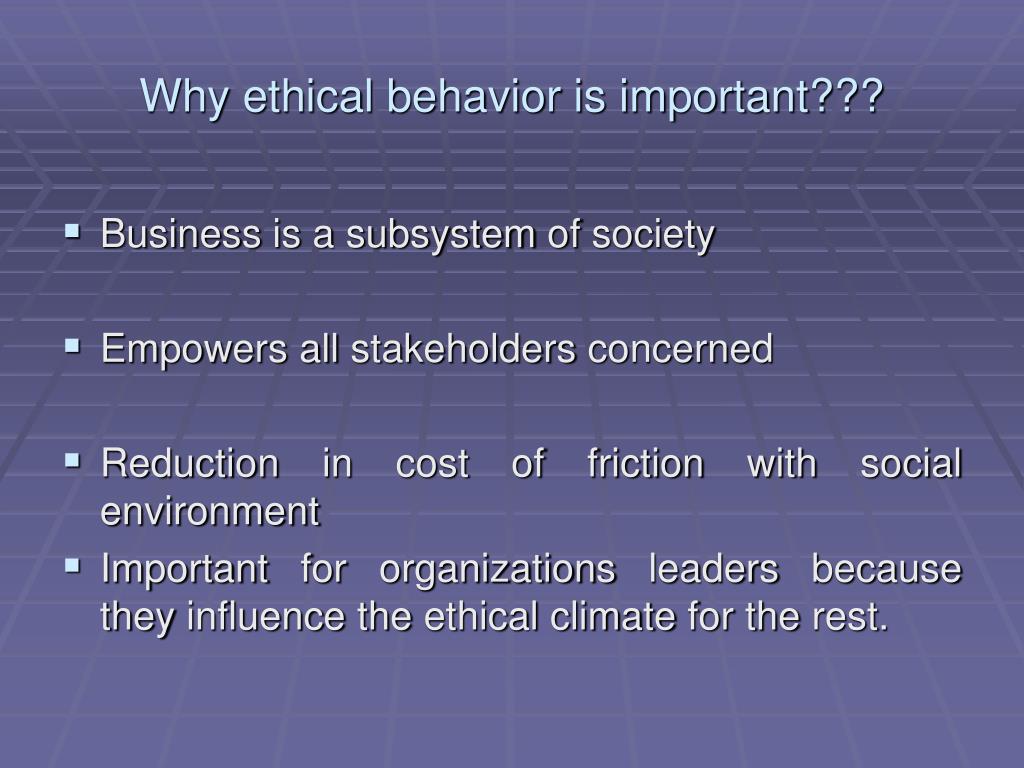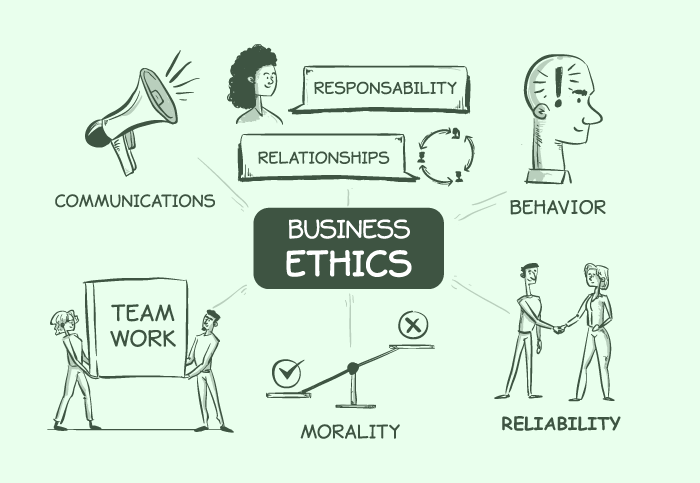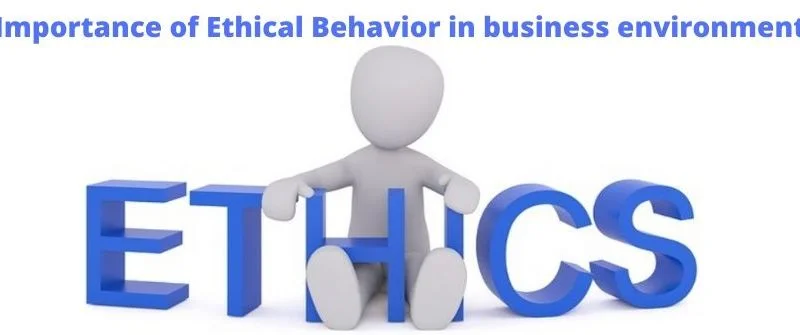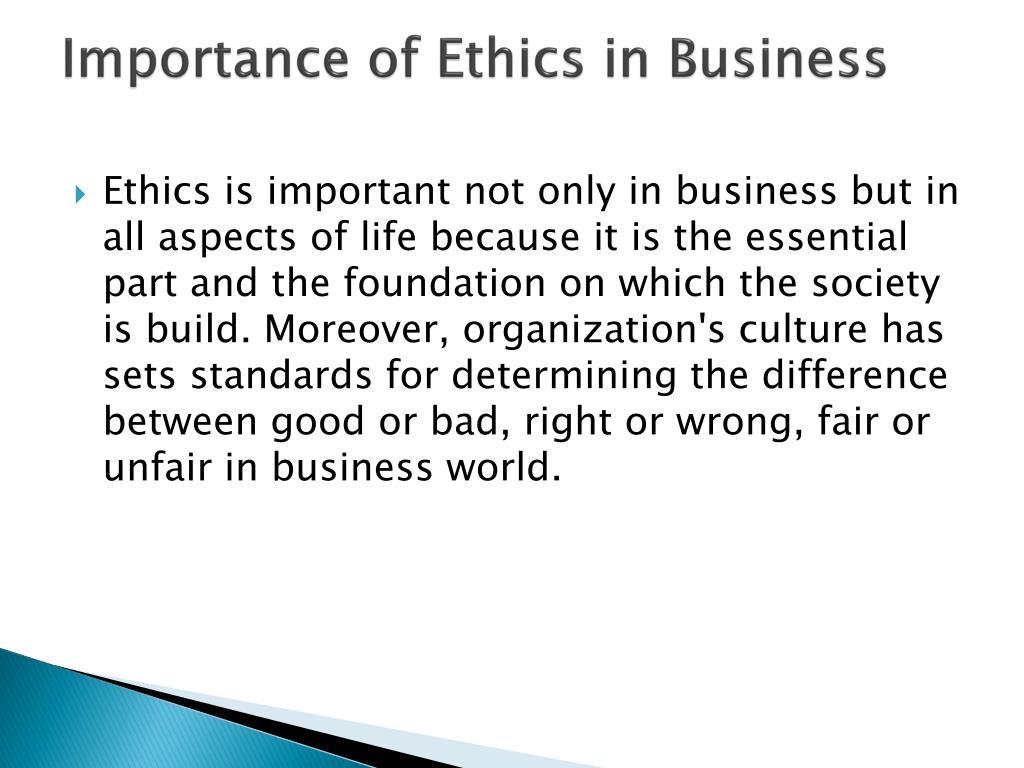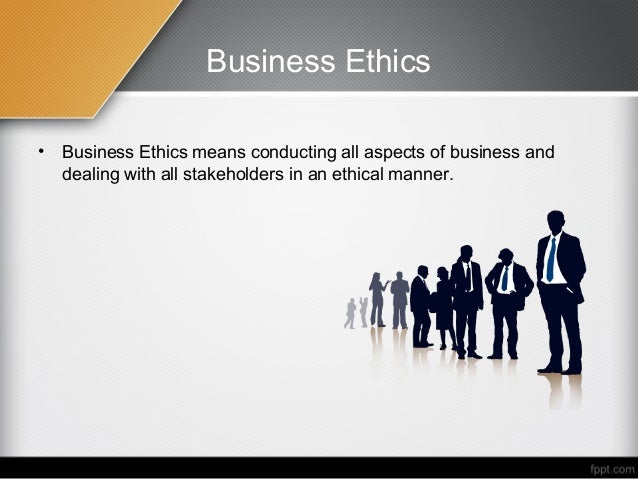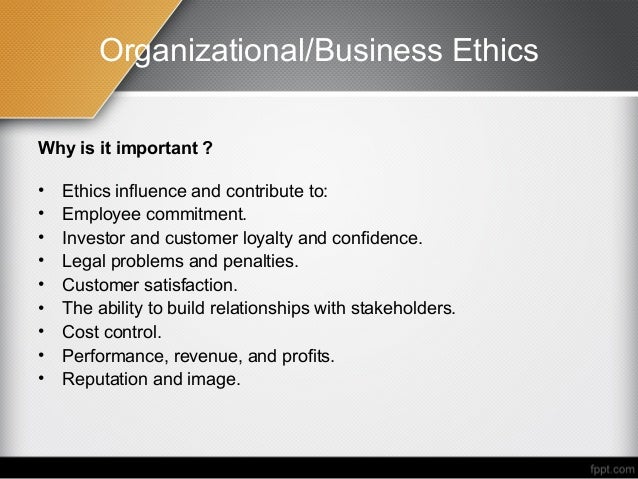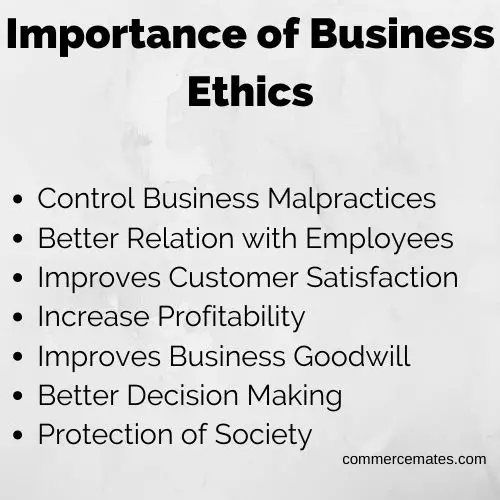Why Is Ethical Behavior Important To Business
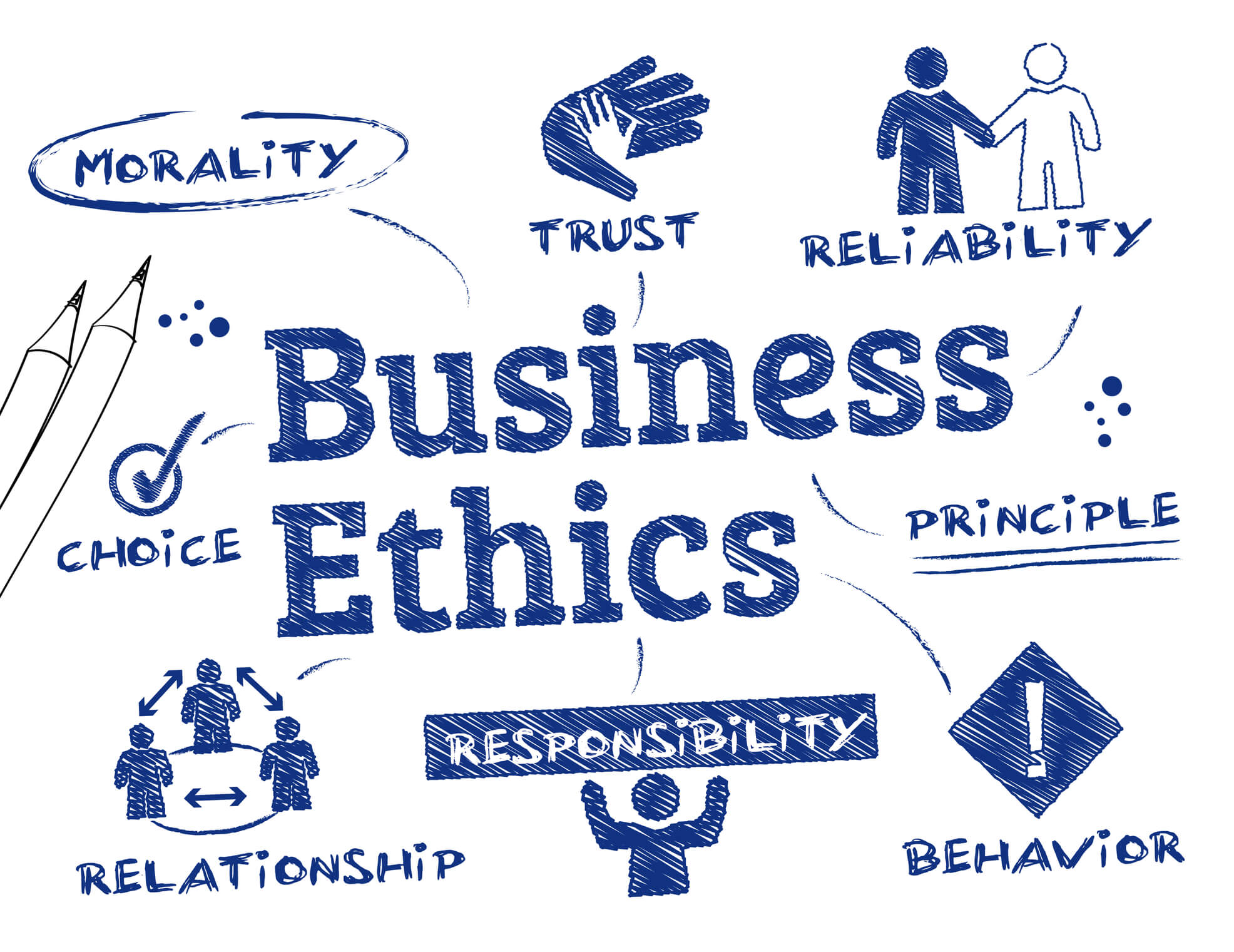
Imagine a bustling marketplace, filled with vendors vying for attention. Now picture two stalls side-by-side: one overflowing with brightly colored goods at impossibly low prices, the other offering similar items, slightly more expensive but radiating an aura of trustworthiness. Which stall draws you in, and why? The answer often lies not just in price, but in an intangible quality: ethics.
At its core, ethical behavior in business isn't just about avoiding legal trouble; it's about building trust, fostering sustainable growth, and contributing to a more just and equitable world. This article explores why prioritizing ethical conduct is paramount for businesses seeking long-term success and societal well-being.
The Foundation of Trust
Trust is the bedrock upon which successful businesses are built. Customers are more likely to support companies they believe are honest, transparent, and genuinely care about their needs.
A 2023 Edelman Trust Barometer report revealed that business is now seen as more trusted than government and media in many countries. This elevated position comes with increased responsibility to act ethically and in the best interests of all stakeholders.
Building Strong Relationships
Ethical behavior extends beyond customer relationships. It creates a positive work environment that attracts and retains talented employees. Employees who feel valued and respected are more likely to be engaged, productive, and loyal.
"A strong ethical culture fosters employee commitment and reduces turnover," states a 2022 study by the Society for Human Resource Management (SHRM). This ultimately saves companies money on recruitment and training.
Sustainable Growth and Reputation
Short-term gains achieved through unethical practices often lead to long-term reputational damage. Negative publicity can erode customer confidence, deter investors, and even lead to boycotts.
Companies with a strong ethical reputation, on the other hand, are better positioned to weather economic storms and attract long-term investment. They are also more likely to be seen as leaders in their industry, setting a positive example for others to follow.
Ethical practices promote innovation and sustainable operations. By focusing on ethical sourcing, environmental responsibility, and fair labor practices, companies can minimize their negative impact and contribute to a more sustainable future.
Beyond Compliance: Creating a Culture of Ethics
Ethical behavior goes beyond simply complying with laws and regulations. It requires a commitment to moral principles and a willingness to do what is right, even when it's not the easiest or most profitable option.
Developing a strong ethical culture starts at the top, with leaders setting the tone and demonstrating their commitment to ethical conduct. Companies need to establish clear codes of ethics, provide ethics training to employees, and create mechanisms for reporting and addressing ethical concerns.
Furthermore, ethical considerations must be integrated into all aspects of the business, from product development and marketing to supply chain management and customer service. This ensures that ethical decision-making becomes ingrained in the company's DNA.
The World Economic Forum emphasizes the importance of businesses embracing stakeholder capitalism. It suggests that companies must balance the interests of all stakeholders, including shareholders, employees, customers, communities, and the environment.
"Companies are increasingly judged on their environmental, social, and governance (ESG) performance. Ethical behavior is central to ESG, influencing investor decisions and attracting customers."
A Call to Action
Ethical behavior is not merely a desirable attribute of business; it's an essential ingredient for long-term success and societal well-being. By prioritizing ethics, companies can build trust, foster sustainable growth, and contribute to a more just and equitable world.
As consumers, employees, and investors, we all have a role to play in promoting ethical business practices. By supporting companies that demonstrate a commitment to ethics, we can help create a marketplace where ethical behavior is not just valued but rewarded.
Ultimately, the choice is ours. Will we support the stall peddling short-term gains at any cost, or the one built on trust, integrity, and a commitment to doing what's right? The future of business, and indeed, society, depends on the answer.
